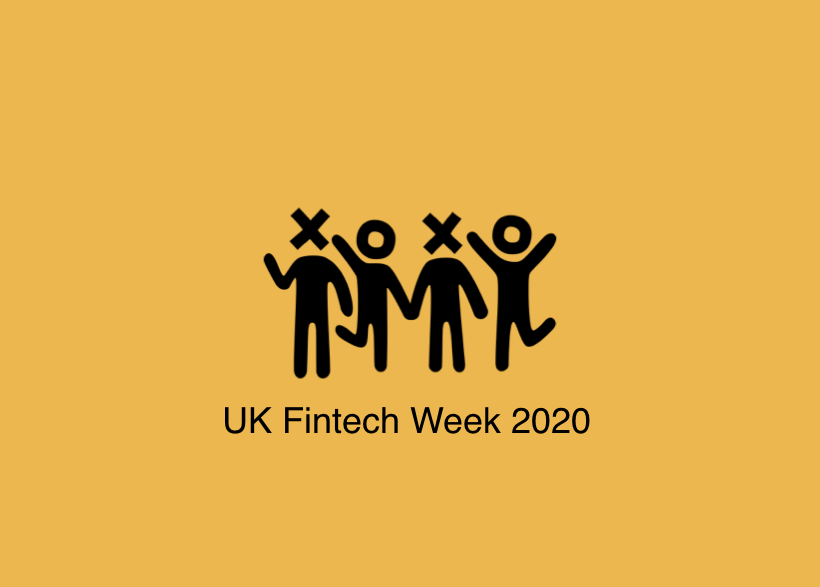This year’s Fintech Week, (technically Fintech Fortnight), will be one for the books
The ‘UK Fintech Week’ initiative is dedicated to championing the power of fintech, and what we as customer-centric, nimble, technologically-advanced businesses can do to change the world and economy for the better.
The week-long series of events which typically brings thousands of people together from around the world will now be a digital series of panels, webinars and virtual roundtables. Last year thousands of people in the fintech community, including Fractal and myself, flocked to historical venues such as the Guildhall, Mansion House, and London Stock Exchange to meet old friends, drink coffee and wine with new ones, and to hear new ideas set to shake up the industry.
Will this year be the same? No? Can we still work together to find the silver linings, and shoulder the more difficult task at hand - to ease the financial and mental stress for small businesses, consumers, and each other? Yes.
Let’s take it back to one of the only (sort of) blueprints we have for what’s happening right now in the UK for fintechs.
The 2009 financial crisis. Many fintech and tech businesses were born out of the 2007-8 financial crisis, and we are in the midst of another, more challenging crisis that will test the learnings and the community ethos of the fintech and FS communities themselves. Except for this time, there is nobody to shoulder the blame, although, the pandemic has shown that some banks continue to be very inefficient as we can see today with the handling of CBILS, and are not always working with the end-customers best interests at heart until they are called out.
So instead of building something to fix an existing problem created by a few bad players at the forefront of a global financial crisis, the fintech industry should be looking to do a few things this year:
- Collaborate - build solutions together to alleviate issues small businesses and consumers had before the pandemic that has now increased in severity - for example, if late payments for small businesses was a problem before this pandemic, it has definitely worsened now;
- Work fast - come up with short-term products and solutions to ease the pain felt in the ecosystem. We do not know how long this pandemic will last for, but it will end at some point. The CBILS, halting interest and fee payments all are examples of short-term solutions but will have long-term ramifications for financial institutions, businesses, and the economy. These short-term ideas are necessary to quickly fix the current issues at hand. Delaying action could cause a catastrophic, irreversible, unforeseen impact on the economy; and
- Consider the long-term impact - alongside the short term fixes, we also need to think about sustainability. What does a world post-pandemic look like? How will we adjust to that financially? How will we help the end-customer and the fintech industry itself get back on solid footing? We need to think about why safeguards were not put in place in the financial industry for a situation like this. It may have come as a surprise to the world, but shouldn’t we always be one step ahead - thinking about how we can work smarter to adjust to the unknowns?
Also, we must not forget the need to encourage the government and policymakers to put fintech front and centre. It has been said that the government was not willingly adding alternative lenders to the CBILS last week due to a lack of trust. However, over the Easter weekend, fintechs such as Starling Bank and OakNorth Bank were added to the CBILS roster. More could be announced over the coming weeks, but we should be asking the government, why did this take so long?
Last year the UK fintech industry generated £6.6 billion to the economy and employed over 765,000 people.
This is not the time to ignore the positive impact fintech has on small businesses, consumers and the economy in the UK.
By promoting UK fintech, we can also remind others that you can start and build a business in the middle of a crisis. For existing companies, they can continue to build relationships globally, and if they’re resilient enough, they may even be more successful once the dust has settled.
In this ever-changing state of the world, more and more digital events will need to focus on the immediate situation at hand. It’s the very thing our community has always been good at - coming together, putting differences aside to give small businesses and consumers a fighting chance. If UK Fintech Week is about everyone working in sync to fix real-time problems, then this year should prove it.


-1.jpg?width=50&name=Headshots%20-%20Helene%20Panzarino-013%20(2)-1.jpg)
-3.jpg)


